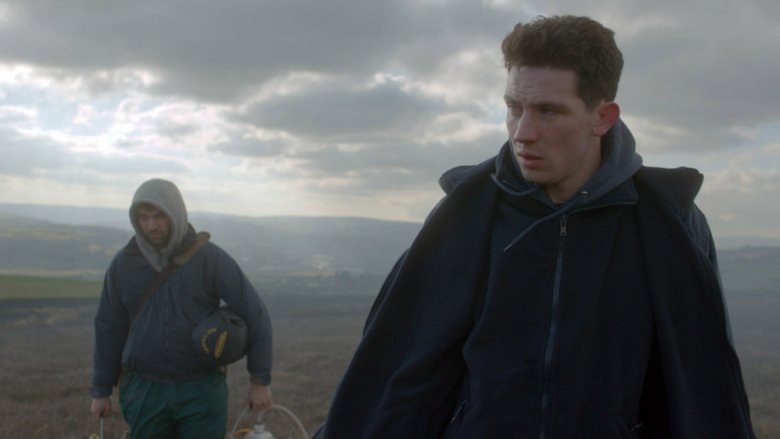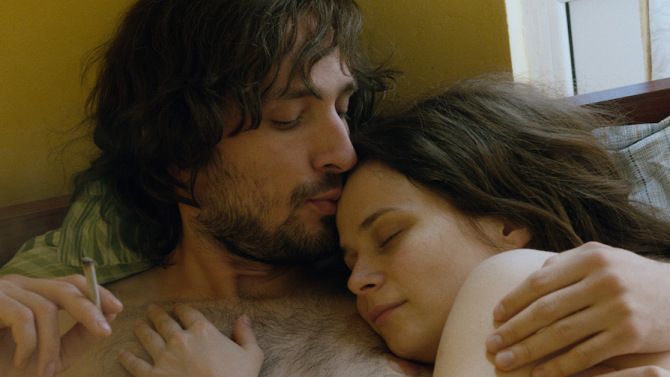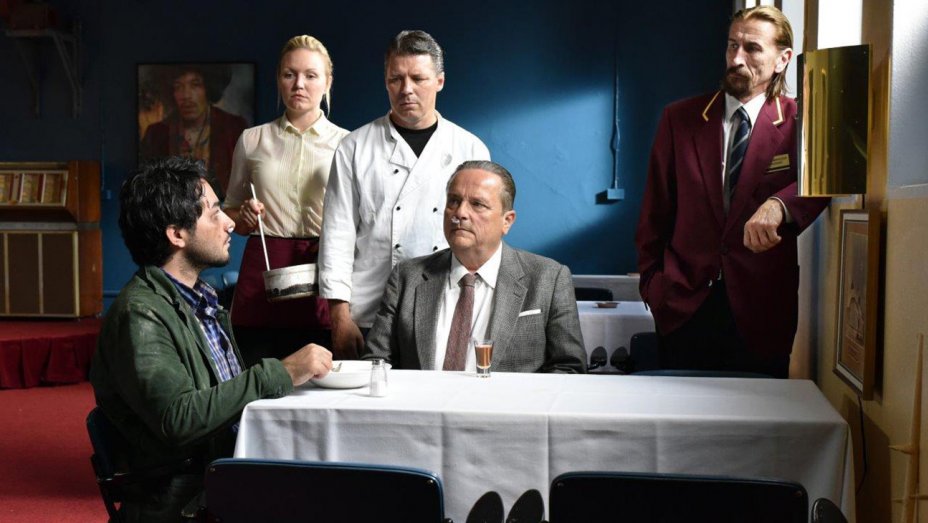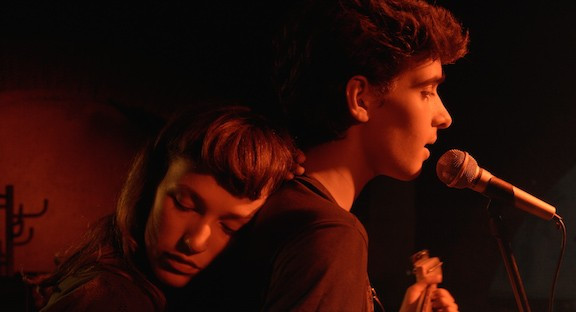5. God’s Own Country

There’s no shortage of gay dramas nowadays, and when they’re done in the casual style of “God’s Own Country”, you can’t help but feel like you’ve seen it all before. And the truth is, you have, because there’s nothing in Francis Lee’s debut that could be called genre reforming.
But here’s the thing – it works. These days, a classic indie style is so synonymous with boring and stale cinema that one can almost be excused for rejecting “God’s Own Country” for its simplicity. That would be missing the point, as the love story between a farmer named Johnny and a Romanian immigrant named Gheorghe set in Yorkshire has already been compared to “Brokeback Mountain”, and makes great use of those techniques to create a raw and real picture.
Josh O’Connor plays a frustrated young man with such subtlety and dedication that it makes you believe every word coming from his mouth, and the same exact thing can be said of Lee’s directing; it’s sometimes too subtle to be taken in, but it’s always completely in control.
One of the least inspiring things at the Berlin Film Festival is the pretense of many debutantes and young filmmakers. “God’s Own Country” is the exact opposite of that – it doesn’t care about showing off, it cares about connecting to the viewer, and that can be both seen and, more importantly, felt.
4. Animals

If Greg Zglinski’s “Animals” were an English movie, it would no doubt make a big splash in the so-called mindfuck genre. For a Swiss-Austrian-Polish movie, such may not be the case, but the genre fans should take notice, as this is one for the ages.
Nick and Anna are traveling to Switzerland for six months. They invite Mischa, a girl who they somewhat know, to take care of the apartment while they’re gone. However, when the couple crashes into a sheep, peculiar things start to happen.
Now, it should be said that “Animals” is Lynch-esque, because that’s what you say about this film genre, but this one is actually so twisted, so convoluted, and so complicated that it works almost like a parody of the genre. Which is not to take anything away for “Animals”; in fact, quite the opposite – it’s a great big fun film with heaps of self-irony, and one that out-lynches Lynch himself.
3. Ana, Mon Amour

Călin Peter Netzer’s previous effort, 2013’s “Child’s Pose” was an emotionally draining ensemble piece that won the Golden Bear four years ago. “Ana, Mon Amour”, while far more restrained in some aspects, packs just as many emotional punches and is overall perhaps even more complete than the Berlin winner.
Toma and Ana meet at university and begin an affair. When she starts having panic attacks, which are stronger and more frequent every day, Toma gives her complete support. He sacrifices his time and his money to do everything for Ana to get better. His dedication is such that the viewers can’t help but feel he needs her just as much she him.
We change timelines every other scene (in the style of “Blue Valentine”) and get a picture of both mental illness and a crumbling relationship. Netzer doesn’t seem too interested in conveying what he thinks the causes may be for them coming together and then falling apart, but is much more interested in the way these two react to one another as time goes by.
While perhaps siding more with Toma than Ana, the movie nonetheless avoids blaming anyone, and surely any viewer will sympathize with both sides of the couple. It’s always admirable when a screenwriter manages to create a real, living, breathing character who makes mistakes, who has flaws, and yet is still completely relatable, and Netzer has done so with both of his leads.
2. The Other Side of Hope

This Aki Kaurismäki comedy tells two stories that converge in the second half of the picture. The first follows Khaled, a Syrian refugee seeking asylum in Finland, and the second follows Wikström, a traveling salesman who leaves his wife and job to become a businessman.
As ever with Aki, his latest one holds a distinctive and immediately recognizable style (shot, by the way, on 35mm), and manages to touch on some grave subjects all while telling a very down to earth story. It’s a tale of two people, first and foremost, and the contexts from which they come; while those contexts are crucial to who they are, they are seen only through their personal perspectives.
Arguably the most anticipated of this year’s films from the Berlin Film Festival, “The Other Side of Hope” isn’t exactly innovative, but why change a winning formula? The Best Director award is the least the jury could do to celebrate this comedy, though it would have been entirely understandable to give it the Golden Bear as well.
1. Colo

Teresa Villaverde’s competition drama is a divisive one. It’s excruciatingly slow and seemingly entirely pointless, at least for a big chunk of its 136-minute duration, and it’s also painfully realistic. Not only that, but even if you’re one of the few who can claim they ‘got it’, you can be sure there are tons of ideas that went over your head.
The family of a father, mother, and daughter fall slowly and irreversibly into decay; not into dramatic homelessness, but into impotence. Coming from Portugal, a country that’s faced huge economic problems for years, it seems like a cry for help, but one that’s so rooted in everyday life that even the ones sending it don’t realize it.
All three characters have their arcs; first losing their trust in one another, then their trust in the very idea of a home, and lastly in any sense of hope whatsoever. Villaverde seems to say that the end of the world will come without us even noticing, much less understanding it, and perhaps it already has.
Philosophical cinema is a term used very loosely, but “Colo” is the one movie from this year’s Berlin Film Festival worth returning to again and again. It is not surprising in the slightest that “Colo” didn’t win any awards – movies that divisive rarely do – but it’s the one picture from this year’s competition that brought something truly original to the table.
Author Bio: Vladas is a film journalist and a festival programmer with a degree in Philosophy. He is confident that one day he will write a comedy at least as good as Hot Fuzz, although all evidence so far points otherwise. He also likes to read and crush the opposition in old Fifa games.